General managers of baseball teams are constantly making decisions that will impact the future of their clubs. Grading them on only two decisions might be a bit unfair, but it makes for an interesting exercise. As we did with the American League earlier this week, now it's the turn of every National League GM to be graded solely on their best and worst trades, with an emphasis on moves made with their current team when possible. Finally, where the GM is not the head decision-maker for baseball operations, the GM is listed in parentheses.
Jump by tier:
Tier 1: Elite wheeler-dealers | Tier 2: Taking big swings, risking big misses
Tier 3: Problem-solving pros | Tier 4: Show us more
Jump to a team:
ARI | ATL | CHC | CIN | COL
LAD | MIA| MIL | NYM | PHI
PIT | STL | SD| SF | WAS
Tier 1: Elite wheeler-dealers
Milwaukee Brewers: David Stearns
Grade: A
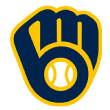 Best: Traded Lewis Brinson, Monte Harrison, Isan Diaz and Jordan Yamamoto to Marlins for Christian Yelich
Best: Traded Lewis Brinson, Monte Harrison, Isan Diaz and Jordan Yamamoto to Marlins for Christian Yelich
Worst: Traded Khris Davis to A's for Jacob Nottingham and Bubba Derby
In the two years since David Stearns traded for Yelich, the outfielder has been the best player in the National League, hitting 80 homers with a batting line 70% better than league average and a 15.4 WAR. Those numbers have come with two playoff berths. Milwaukee gave up a ton of talent that hasn't yet panned out in Miami, but this trade was going to be a huge win for the Brewers regardless. When Stearns traded Davis to Oakland, the slugger looked more like a part-time player with some pop than the guy who would average 44 homers over the next three seasons and lead all of baseball in dingers. Even with subpar defense, he remained an above-average player.
Atlanta Braves: Alex Anthopoulos
Grade: B
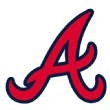 Best: Traded Brett Lawrie, Kendall Graveman, Sean Nolin and Franklin Barreto to the A's for Josh Donaldson
Best: Traded Brett Lawrie, Kendall Graveman, Sean Nolin and Franklin Barreto to the A's for Josh Donaldson
Worst: Traded Noah Syndergaard, Travis d'Arnaud, John Buck and Wuilmer Becerra to the Mets for R.A. Dickey, Josh Thole and Mike Nickeas
While we try to keep this exercise on the current squads, for Anthopoulos' time with the Braves we'd be limited to a Matt Kemp-Adrian Gonzalez cash-swap, bringing in Kevin Gausman and adding a handful of relievers. That's not really fair to Anthopolous when he made one of the better trades of the decade by getting future MVP Donaldson. On the flip side, he traded away Thor for knuckleballer Dickey, and then watched Syndergaard immediately outpitch the former Cy Young winner he acquired.
Chicago Cubs: Theo Epstein (Jed Hoyer)
Grade: B
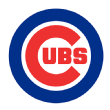 Best: Traded Andrew Cashner and Kyung-Min Na to the Padres for Anthony Rizzo and Zach Cates
Best: Traded Andrew Cashner and Kyung-Min Na to the Padres for Anthony Rizzo and Zach Cates
Worst: Traded Eloy Jimenez, Dylan Cease, Matt Rose and Bryant Flete to the White Sox for Jose Quintana
Epstein once traded away Rizzo in Boston, but he got him back by giving up a high-powered arm in Cashner. Over the past 50 years, only Ryne Sandberg, Sammy Sosa and Mark Grace have more than Rizzo's 30 WAR as a Cubs position player.
The prevailing opinion seems to be that whatever trades and moves Epstein made before winning the World Series must have been worth it because they finally won. In a strict value sense, Gleyber Torres is likely to be worth much more over the next five years than Aroldis Chapman was in three months for the Cubs. Chapman also blew a save in the deciding game of the season, but the Cubs did go on to win and Chapman played an important role in getting them there.
Value-wise, Quintana for Jimenez, Cease et al. seemed like a pretty fair trade and Quintana did play an important role in getting the Cubs to the playoffs in 2017, but Quintana has been inconsistent the past two seasons while Jimenez continued his trajectory toward major league stardom and Cease still has a shot.
Tier 2: Taking big swings, risking big misses
Los Angeles Dodgers: Andrew Friedman
Grade: B
Best: Traded Matt Kemp and Tim Federowicz for Yasmani Grandal, Kyle Weiland and Zach Eflin
Worst: Traded Yordan Alvarez to Astros for Josh Fields
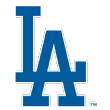 Getting the Padres to take on the vast majority of the contract of a declining Kemp would have put this trade in the solid category. Getting the player who would be neck-and-neck with Buster Posey over the next four years for the title of best catcher in baseball makes the trade a great one. Friedman has given up a few talented players since coming to L.A. from Tampa Bay, including top prospect Oneil Cruz, but giving away Alvarez and his 27 homers in his half-season debut last year looks to be the worst swap of talent in Friedman's tenure.
Getting the Padres to take on the vast majority of the contract of a declining Kemp would have put this trade in the solid category. Getting the player who would be neck-and-neck with Buster Posey over the next four years for the title of best catcher in baseball makes the trade a great one. Friedman has given up a few talented players since coming to L.A. from Tampa Bay, including top prospect Oneil Cruz, but giving away Alvarez and his 27 homers in his half-season debut last year looks to be the worst swap of talent in Friedman's tenure.
San Diego Padres: A.J. Preller
Grade: C
 Best: Traded James Shields to the White Sox for Fernando Tatis Jr. and Erik Johnson
Best: Traded James Shields to the White Sox for Fernando Tatis Jr. and Erik Johnson
Worst: Traded Yasmani Grandal, Kyle Weiland and Zach Eflin to the Dodgers for Matt Kemp and Tim Federowicz
One of Preller's lesser-known deals at the time has turned into his best. Tatis Jr. hit 50% better than league average in a bit more than a half season last year; he's still just 21 years old with the potential to be a star for years. On the other hand, one of Preller's first big moves might have been his worst. Kemp was coming off a solid offensive 2014 season, but he was a defensive liability, had just turned 30 and likely exited his prime, plus the Padres were taking on $75 million of the more than $100 million left on his deal. He was bad almost immediately while Grandal's 19.7 WAR over the next four years ranked 15th among all position players, right behind Christian Yelich and Jose Ramirez and ahead of Freddie Freeman, Justin Turner and Anthony Rendon.
Tier 3: Problem-solving pros
Arizona Diamondbacks: Mike Hazen
Grade: B
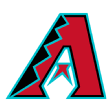 Best: Traded Jean Segura, Mitch Haniger and Zac Curtis to the Mariners for Ketel Marte and Taijuan Walker
Best: Traded Jean Segura, Mitch Haniger and Zac Curtis to the Mariners for Ketel Marte and Taijuan Walker
Worst: Traded Brandon Drury, Colin Poche, Anthony Banda and Sam McWilliams to Tampa Bay for Steven Souza and Taylor Widener
Hazen's best trade could have gone a number of different directions. Segura was a good player when he was sent to Seattle and Haniger broke out in a big way in 2018 while Walker has been hurt since a solid 2017 season. Hazen also ended up with the best player in the deal in Marte, whose .329/.389/.592 batting line was 50% better than league average. Add in baserunning and defense and Marte's 7.1 WAR ranked sixth among all position players. On the other side, though the players he gave up never made an impact, Souza made just 272 plate appearances in two seasons and was below replacement-level after a solid 2017 campaign with the Rays.
Philadelphia Phillies: Matt Klentak
Grade: B
 Best: Traded Sixto Sanchez, Jorge Alfaro and Will Stewart to Marlins for J.T. Realmuto
Best: Traded Sixto Sanchez, Jorge Alfaro and Will Stewart to Marlins for J.T. Realmuto
Worst: Traded Franklyn Kilome to Mets for Asdrubal Cabrera
While much of the Realmuto trade will hinge on the future development of Sanchez, and the Phillies could miss out a prime Realmuto season if 2020 doesn't get going, the Phillies traded for one of the top 20 players in the game while Sanchez and Alfaro haven't improved their stock since. Though he doesn't have much in the way of bad trades, but when he acquired Cabrera in the middle of the 2018 season to help the Phillies make the playoffs, Klentak was probably hoping for better than the weak .286 on-base percentage as the team faded down the stretch.
St. Louis Cardinals: John Mozeliak (Mike Girsch)
Grade: B
 Best: Traded Jim Edmonds to the Padres for David Freese
Best: Traded Jim Edmonds to the Padres for David Freese
Worst: Traded Scott Rolen to the Blue Jays for Troy Glaus
In 2007, Edmonds struggled and, heading into his age-38 season, Mozeliak found a taker in San Diego. At the time, Freese was almost too old to be thought a prospect and was blocked by Kevin Kouzmanoff at third base. A St. Louis native, Freese earned playing time in 2010 and was an above-average player throughout his time with the Cardinals, including an All-Star-caliber 2012 season, but he is mostly known for his incredible 2011 postseason where he hit .397/.465/.794 and had one of the most memorable postseason games in baseball history. Less successfully, Tony La Russa and Rolen butted heads in the 2007 season and Mozeliak opted to move Rolen rather than force the player and manager to work things out. Glaus was good in 2008, but he was hurt all of 2009 while Rolen averaged four wins above replacement over the next three years.
Washington Nationals: Mike Rizzo
Grade: B
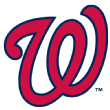 Best: Traded Steven Souza and Travis Ott to the Rays for Joe Ross and (later from Padres) Trea Turner
Best: Traded Steven Souza and Travis Ott to the Rays for Joe Ross and (later from Padres) Trea Turner
Worst: Traded Nick Pivetta to the Phillies for Jonathan Papelbon
Rizzo's best moves have come in free agency and on the amateur level, but he does have one big trade that was an unquestionable success. As Tampa Bay was working to move Wil Myers to San Diego, Rizzo got involved and managed to land their shortstop of the future in Trea Turner as well as Joe Ross, who has contributed out of the rotation and bullpen. Turner has put up more than eight wins above replacement over the past two seasons and played a huge role in Washington winning the World Series.
Rizzo doesn't have a lot of terrible trades, but bringing in Papelbon to be the closer instead of Drew Storen (who had pitched well in that role) didn't work out. Papelbon also choked Bryce Harper in the dugout in an ugly incident caught on camera. Meanwhile, Pivetta looks to be at least a good reliever with a chance to be a solid starter for a division rival.
Pittsburgh Pirates: Ben Cherington
Grade: C
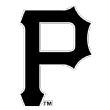 Best: Traded Andrew Miller to the Orioles for Eduardo Rodriguez
Best: Traded Andrew Miller to the Orioles for Eduardo Rodriguez
Worst: Traded John Lackey and Corey Littrell to Cardinals for Joe Kelly and Allen Craig
We don't have a Pirates' track record here so we will go back to Boston for Cherington. Miller was a pending free agent, and in giving up two months of Miller's services Cherington netted a solid starter with a minibreakout in Rodriguez. The Red Sox still have two more seasons of team control for Rodriguez as the trade continues to provide dividends.
Lackey had an unusual clause in his contract that would have him pitch for the league minimum if he lost a season to injury in his first five years. Rather than dealing with an unpleasant Lackey, Cherington traded the righty at the deadline to St. Louis. Kelly eventually turned into a decent reliever, but Craig never got over his injuries and the Red Sox paid nearly $30 million for little to no production.
Tier 4: Show us more
Cincinnati Reds: Dick Williams
Grade: C
 Best: Traded Dan Straily to the Marlins for Luis Castillo, Austin Brice and Zeek White
Best: Traded Dan Straily to the Marlins for Luis Castillo, Austin Brice and Zeek White
Worst: Traded Homer Bailey, Jeter Downs and Josiah Gray to the Dodgers for Matt Kemp, Yasiel Puig, Alex Wood and Kyle Farmer
Getting the ace of a staff for a journeyman is always going to make the GM look good, and that's exactly what Williams did in getting Castillo. After a solid 2018 season, Castillo struck out 29% of batters in 190⅔ innings with a 55% ground-ball rate playing very well in Cincinnati's homer-happy ballpark. Cincinnati attempted to get interesting in 2019 and swapped Bailey's bad contract and a couple prospects for Puig and Wood in the hopes the two Dodgers veterans would help them compete. It didn't work as Wood was injured and Puig was only OK. To make matters worse, Gray and Downs have improved and both are among the top 100 prospects in the game.
Colorado Rockies: Jeff Bridich
Grade: C
 Best: Traded Corey Dickerson and Kevin Padlo to the Rays for German Marquez and Jake McGee
Best: Traded Corey Dickerson and Kevin Padlo to the Rays for German Marquez and Jake McGee
Worst: Traded Troy Tulowitzki and LaTroy Hawkins to the Blue Jays for Jose Reyes, Jeff Hoffman, Miguel Castro and Jesus Tinoco
At the time of Bridich's best trade, it looked like Dickerson for McGee. On those merits, the Rays might have won the deal with Dickerson having a couple solid seasons with Tampa Bay and McGee mixing in a good season with mostly bad ones. But Marquez's development into a top-of-the-rotation starter makes this a big win for Colorado; Marquez has been one of the top 20 pitchers in the game the past two seasons with only Shane Bieber and Walker Buehler accumulating more than Marquez's 7.5 WAR among pitchers under 25 years of age. As for Tulowitzki, the Rockies held onto their star shortstop way too long and when they did finally move him, they had to take a salary dump in Reyes, with Hoffman still fighting for an end-of-rotation role.
Miami Marlins: Mike Hill
Grade: C
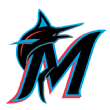 Best: Traded Marcell Ozuna to the Cardinals for Sandy Alcantara, Zac Gallen, Magneuris Sierra and Daniel Castano
Best: Traded Marcell Ozuna to the Cardinals for Sandy Alcantara, Zac Gallen, Magneuris Sierra and Daniel Castano
Worst: Traded Christian Yelich to the Brewers for Lewis Brinson, Monte Harrison, Isan Diaz and Jordan Yamamoto
The Marlins have traded for a lot of talent over the past few years, but their best return has come from the Cardinals in the Ozuna trade. While Sierra hasn't advanced, both Gallen and Alcantara already look like at least average starting pitchers. The team has moved Gallen for an intriguing prospect in Jazz Chisolm, who could be the future shortstop.
The biggest influx of talent at the time of a trade came from the Brewers for Yelich. Unfortunately, Brinson has yet to click and Harrison and Diaz have gone through their own struggles. The Marlins needed a home run with the Yelich trade, and that just hasn't happened.
San Francisco Giants: Farhan Zaidi
Grade: C
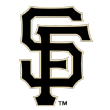 Best: Traded Tyler Herb to the Orioles for Mike Yastrzemski
Best: Traded Tyler Herb to the Orioles for Mike Yastrzemski
Worst: Traded Mark Melancon to Braves for Tristan Beck and Dan Winkler
We don't have a lot to go on with Zaidi in his time with the Giants. Yastrzemski was 28 years old and maybe a Quad-A player who seemed to have reached his ceiling in the Orioles' system. But the talent-starved Giants got him for next to nothing, gave him playing time last year and got an above-average player for their trouble.
Zaidi seems to have sold low on Melancon to move his salary off the books. He was great for the Braves down the stretch last year and should have a prominent role in the bullpen this season.
New York Mets: Brodie Van Wagenen
Grade: D
 Best: Traded Luis Santana, Ross Adolph and Scott Manea to the Astros for J.D. Davis and Cody Bohanek
Best: Traded Luis Santana, Ross Adolph and Scott Manea to the Astros for J.D. Davis and Cody Bohanek
Worst: Traded Jarred Kelenic, Jay Bruce, Justin Dunn, Anthony Swarzak and Gerson Bautista to the Mariners for Edwin Diaz and Robinson Cano
Getting J.D. Davis seems like a nice find for Van Wagenen with a solid 2019 season after failing to find meaningful playing time in Houston. That probably doesn't make up for giving up one of the best prospects in baseball (Kelenic) for a reliever and the declining years of Cano as well as having to pay $100 million of the $120 million left on his contract. Seeing both Diaz and Cano immediately perform poorly is a little more salt on the wound, but this trade was the Mets' mistake from the start.
